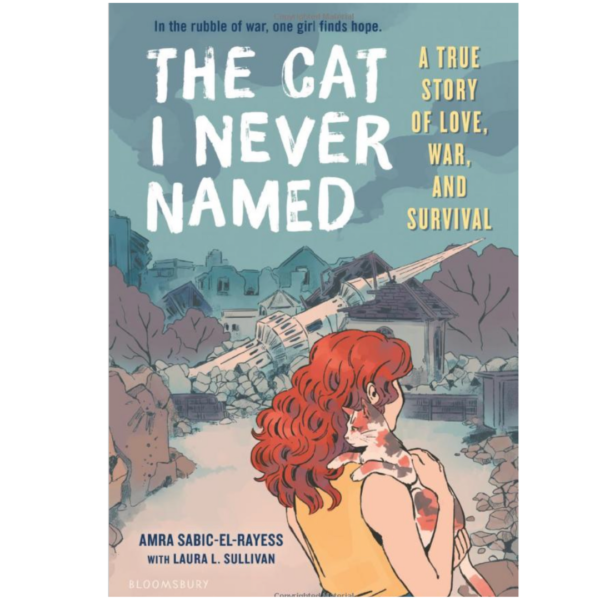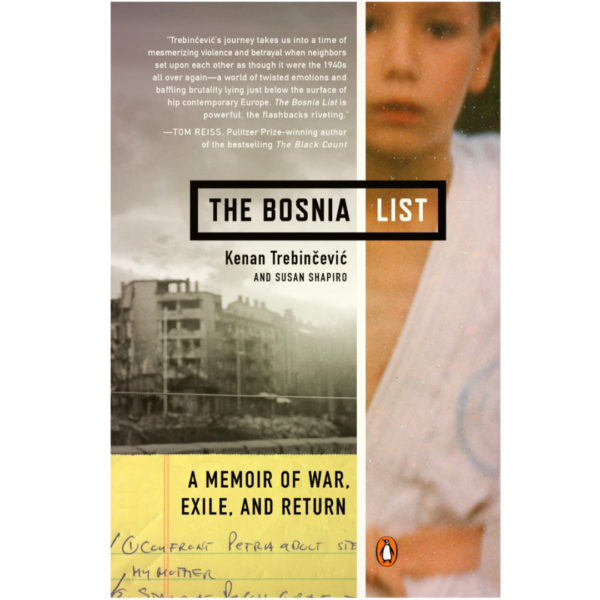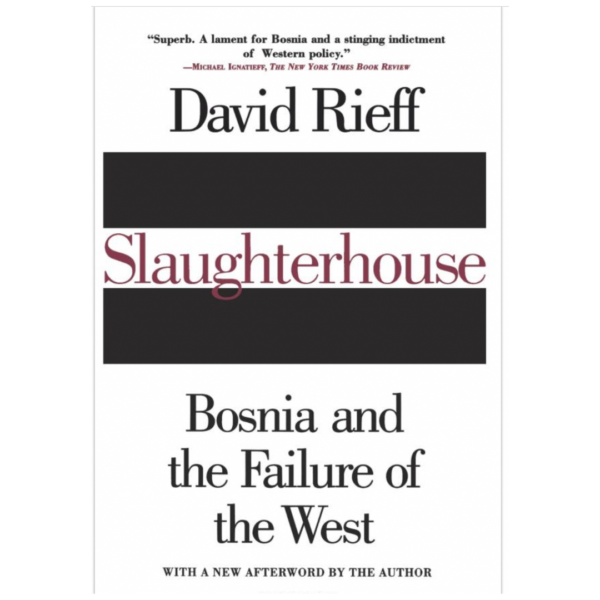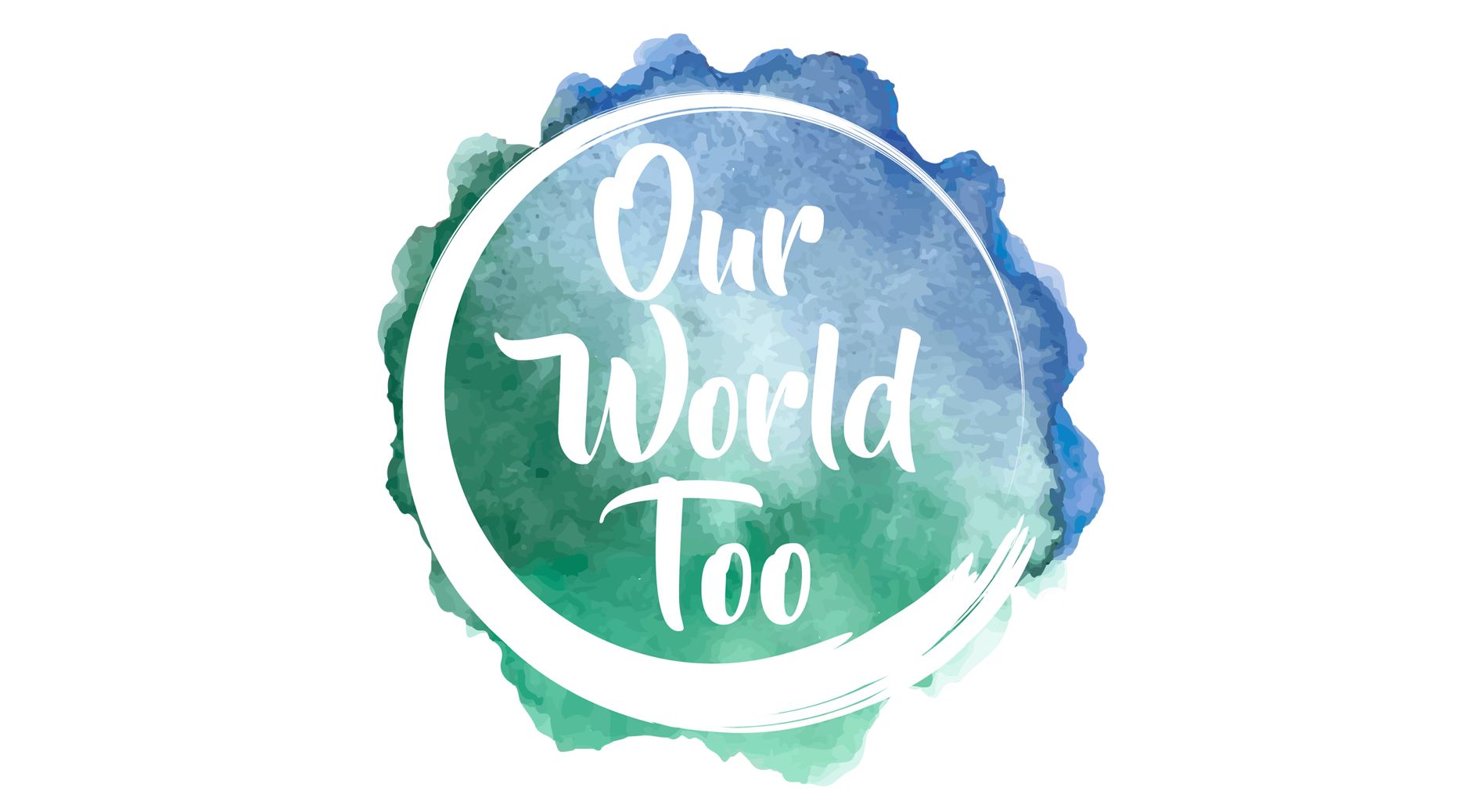Want to learn more about the Bosnian Genocide? Here are 5 books we recommend.
Bosnia and Herzegovina is beautiful and welcoming, with some of the best food you will ever taste. However, from 1992-1995 the country was subjected to a brutal campaign of ethnic cleansing and genocide by Serb and Croat fascists who sought to divide the country between Serbia and Croatia respectively. Nearly 30 years have passed since the end of the war, but Bosnia continues to struggle with the implications of the Bosnian Genocide and an international community whose intervention came too late.
We’ve compiled this list as a guide for people who want to learn more about the Bosnian Genocide. With fascism and right-wing parties once again gaining ground in Europe, it is now more important than ever to learn about the Bosnian Genocide and the dangers of unchecked hate speech and propaganda. ‘Never Again’ isn’t just a hashtag, it is a series of actions we all must take to ensure what happened in Bosnia, in Germany, in Rwanda and what is happening currently in Palestine and to the Uyghurs doesn’t happen again and is stopped.
The Last Refuge – Hasan Nuhanović
‘We went to the mountains of eastern Bosnia to hide from the war. As if a forest could shield you from a war. The war flies, reaches you in a second. It runs through the walls, over the mountains and rivers. It enters your mind, your heart and your soul and refuses to leave . . .’
In The Last Refuge, Hasan Nuhanovic recounts how he and his family were forced to flee their home amid growing violence in their hometown of Zvornik in eastern Bosnia. Escaping into Bosnia’s mountainous countryside, Hasan and thousands of Bosnian refugees faced freezing nights, deprivation, and death.
After months on the move, Bosniaks battled their way to Srebrenica, a town many believed to be their last refuge until the Serb army laid siege to the town. Hasan’s life and those of the thousands of other Bosniaks who had sought refuge in Srebrenica became a daily struggle for survival.
The Last Refuge provides a powerful first-hand account of the precarious life of a refugee during wartime and the years leading up to the Srebrenica Genocide. It is also a compelling story of life, survival, and heroism on the frontlines of the conflict

The Cat I Never Named – Amra Sabic-El-Rayess
‘The heavy snow that blankets the earth and surrounding hills looks so clean, so innocent. You might think the war had never happened. But I know the snow hides bombed buildings and cratered roads. It covers mass graves. There is blood in the earth under all that frozen beauty. You can hide the past, cover it up with snow or lies or years, but those who were there do not forget.”

When the Bosnian Genocide started in 1992, Amra was just a teen living in Bihać, Bosnia. She recalls her friend saying they couldn’t speak anymore but she never mentioned why, but Amra knew the reason, it was because she was Muslim. Other refugees from Bosnia started arriving in Bihać, desperate to flee the Serbian persecution. When Serbian tanks rolled into Bihać, Amra saw her peaceful life vanish as they lay siege to the city.
But even when things seemed hopeless, Amra found a light in the darkness when a stray cat followed her home. Her family didn’t have the money or supplies to support a pet, but after a series of near miracles when the cat seemed to save Amra’s family, how could they say no?
The Cat I Never Named, is Amra’s first-hand account of surviving ethnic cleansing and more than 1,100 days under the Serbs’ military siege. It is the story of a teen who, even in the brutality of war, never wavered in her determination to obtain an education, maintain friendships, and even find a first love – alongside meeting a cat which comforted her in the darkest of times.
The Bosnia List – Kenan Trebincevic
‘In reality, there was no happy ending. There was not even a clear military defence that we could mourn and start to recover from. The war was an open-ended, ongoing disaster, with no point, no positive outcome, no conclusive wisdom, no closure. But I couldn’t settle for that unsatisfying stalemate.’
Before the war, Kenan Trebincevic was a happy, karate-loving kid who lived with his family in the quiet Eastern Bosnian town of Brčko. When the war started, Kenan’s beloved karate coach Pero showed up at his door with an AK-47 screaming – You have one hour to leave or be killed! Kenan’s crime? He was Muslim.
The Bosnia List chronicles Kenan’s escape from the brutal ethnic cleansing campaign that swept Bosnia and Herzegovina. After spending two decades in the United States, Kenan honours his father’s wish to visit Bosnia and makes a list of what he wants to do there. While in Bosnia, Kenan confronts his former neighbour who stole from his mother, sees the concentration camp where his Dad and brother were imprisoned and stands on the grave of his first betrayer to make sure he’s dead. Visiting the land of his birth, Kenan is able to find something more powerful, and shocking than revenge.

Unfinest Hour: Britain and the Destruction of Bosnia – Brendan Simms
‘Britain was alone in opposing the idea of armed intervention to safeguard the passage of humanitarian aid in the Bosnian conflict…Britain abstained on a UN General Assembly resolution in December 1992 comparing ethnic cleansing to genocide and opposed a similar motion at a session of the UN Human Rights Commission’.

During the Bosnian Genocide (1992-1995), Britain stood aside while an internationally recognised state was attacked by externally sponsored, nationalist and fascist Serbs and Croat forces bent on a campaign of territorial aggression and ethnic cleansing. It was Britain’s unfinest hour since 1938. Brendan Simms outlines how John Major’s Conservative Government manufactured a policy on Bosnia from 1991-1995 that was unsustainable on moral grounds.
Based on interviews with many chief participants, parliamentary debates, and a wide range of sources, Brendan Simms’ study traces the roots of British policy and the highly sophisticated way in which the government sought to minimise the crisis and defuse popular and American pressure for action. We all continue to live with the results of these shameful actions to this day.
Slaughterhouse: Bosnia and the Failure of the West – David Reiff
“After Sarajevo, after Srebrenica, we know what “Never again!” means. “Never again’’ simply means “Never again’’ will Germans kill Jews in Europe in the 1940’s. That is all it means.”
David Rieff’s Slaughterhouse is an explanation of a war that will be remembered as the greatest failure of Western diplomacy since in the 1930s. The Bosnian Genocide was more than a tragedy, it was the emblem of the international community’s failure. In Bosnia, genocide and ethnic fascism reappeared in Europe for the first time since WW2, but there was no will to confront them from the United States, Western Europe or by the United Nations.
Reiff outlines the failure of the international community and its implications in this unforgiving account of a war that might have been prevented and could have been stopped.

